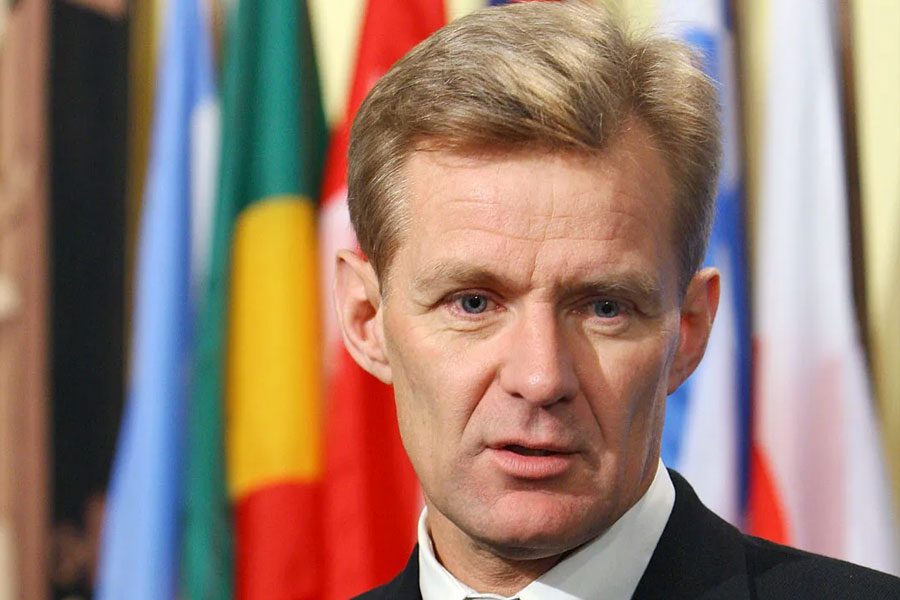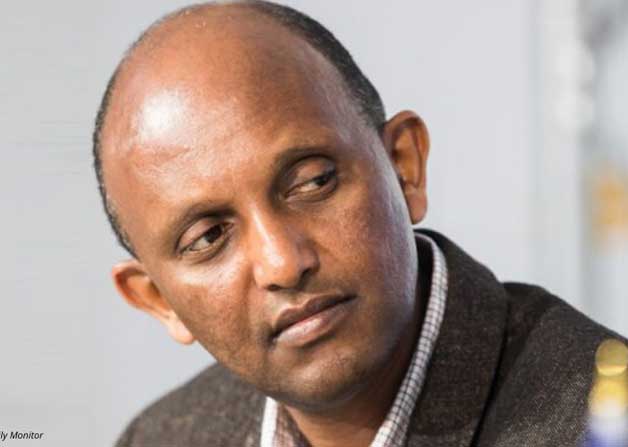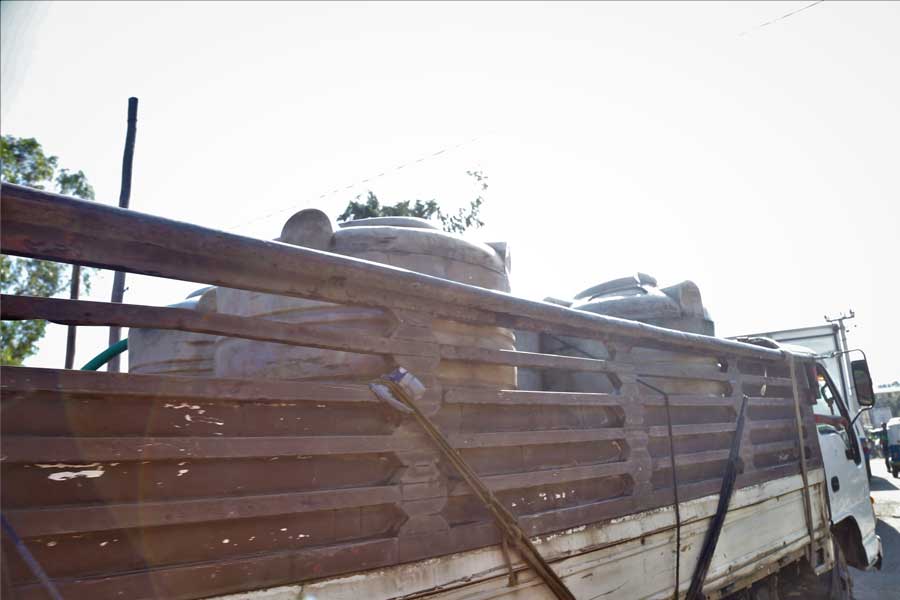
Verbatim | Jun 17,2023
Jan 23 , 2021
By Manish Bapna , Muhammad Musa
The world can emerge stronger from its interconnected health, economic and climate crisis, but success will require bold, urgent and far-sighted measures. World leaders must act today to ensure a durable, equitable recovery that does not neglect the most vulnerable populations, write Manish Bapna, executive vice president and managing director of the World Research Institute, and Muhammad Musa, executive director of BRAC International.
The year 2020 changed everything. The world now faces interconnected health, economic and climate crisis that has no historical parallel. These converging threats affect everyone but are especially devastating for vulnerable developing countries.
The tragedy is that these countries receive relatively little direct public support to build resilience to climate change, and development assistance is being cut rather than expanded. As United Nations Secretary-General António Guterres noted at the recent UN Climate Ambition Summit, developed countries are not on track to meet their commitment to provide 100 billion dollars a year to support developing countries’ climate efforts.
The international community must now show solidarity and help vulnerable countries withstand the multiple threats they face. Doing so is in everyone’s interest, because the effects of climate change, the COVID-19 pandemic and economic shocks know no borders.
In 2020 alone, more than 50 million people were affected by climate-driven disasters while also facing the pandemic and economic crisis. From typhoons and cyclones battering Southeast Asian cities to severe droughts devastating African farmers, the consequences were severe. By the end of 2021, the pandemic could drive an additional 150 million people globally into extreme poverty.
Research by the Global Commission on Adaptation shows that every dollar invested in resilience generates up to 10 dollars in net economic benefits. Such spending can give vulnerable countries an urgent economic boost during the COVID-19 crisis and improve people’s livelihoods.
Many of these states, from Bangladesh to Fiji, are already building resilience to climate threats – but they need more international support to meet the full scale of the challenge. World leaders must therefore step up by investing more, investing early and investing locally.
Although policymakers have so far mobilised 13 trillion dollars for economic recovery, only a very small share of this amount has been spent by low-income developing countries. These economies have been able to allocate just two percent of their GDP to the COVID-19 response and recovery measures, while wealthier economies have spent 8.8pc of GDP on average.
Meanwhile, the cost of helping developing countries adapt to climate change will reach an estimated 140-300 billion dollars a year by 2030 – a fraction of what has been spent on global COVID-19 recovery efforts.
This is not the time for rich countries to be stingy. History has shown that when crises hit, governments can provide more resources without fueling inflation. After the 2008 financial crisis, for example, countries that intentionally ran large budget deficits, such as the United States and China, fared better than those that cut spending. Many studies confirm this positive economic effect.
Moreover, the sooner the international community acts, the better off we will be. As the COVID-19 pandemic has made crystal clear, it is better and less expensive to invest in preparation today than to wait for the next crisis to erupt. Investments in resilience can mitigate future losses from storms, floods and droughts while also creating economic opportunities and boosting social welfare.
For example, making infrastructure more climate-resilient can increase the upfront costs of a project by about three percent, but returns four times as much. Likewise, investing in early-warning systems can save countless lives and assets. Spending 800 million dollars on such systems in developing countries could prevent losses of three to 16 billion dollars per year.
Bangladesh has seen the benefits of such early action firsthand. The country invested heavily in improved early-warning systems and disaster response in the decades following Cyclone Bhola, which killed 300,000 people in 1970. Although every death resulting from a natural disaster is a tragedy, when Cyclone Amphan, a storm of similar magnitude, hit Bangladesh in May 2020, the death toll was in the dozens.
Finally, when implementing these investments, governments must ensure that funding gets to the local level. Local communities are on the front lines of both the COVID-19 and climate crises, but rarely have a voice in the interventions that most affect them. Direct funding to local and national actors accounted for just 2.1pc of total international humanitarian assistance in 2019.
Like other resilience measures, investing in local communities delivers multiple benefits beyond just addressing climate risks. In Kenya, a government programme aimed at empowering local governments and communities to strengthen climate resilience has given households greater access to water, higher incomes and improved food security.
Many solutions exist to get funding to the local level. In 2019, BRAC established the Climate Bridge Fund in Bangladesh to help local nonprofits in communities affected by climate change gain greater access to funding. The programme helps realise locally led climate resilience projects – like upgrading infrastructure in city slums to withstand storms and floods – that might otherwise be overlooked in favour of higher-profile initiatives.
The world can emerge stronger from the interconnected health, economic and climate crisis, but success will require bold, urgent and far-sighted action. The upcoming Climate Adaptation Summit and November’s COP26 climate conference in Glasgow will serve as important checkpoints for the international community. But we cannot wait until then to advance adaptation measures. World leaders must act today to ensure a durable, equitable recovery that supports the most vulnerable populations.
PUBLISHED ON
Jan 23,2021 [ VOL
21 , NO
1082]

Verbatim | Jun 17,2023

Covid-19 | Jun 11,2021

Commentaries | Apr 28,2024

Radar | Jan 23,2021

Radar | Jul 25,2020

Commentaries | May 25,2019

Agenda | Oct 26,2019

My Opinion | Dec 23,2023

Viewpoints | Jan 27,2024

Commentaries | May 27,2023

My Opinion | 131548 Views | Aug 14,2021

My Opinion | 127903 Views | Aug 21,2021

My Opinion | 125879 Views | Sep 10,2021

My Opinion | 123510 Views | Aug 07,2021

Dec 22 , 2024 . By TIZITA SHEWAFERAW
Charged with transforming colossal state-owned enterprises into modern and competitiv...

Aug 18 , 2024 . By AKSAH ITALO
Although predictable Yonas Zerihun's job in the ride-hailing service is not immune to...

Jul 28 , 2024 . By TIZITA SHEWAFERAW
Unhabitual, perhaps too many, Samuel Gebreyohannes, 38, used to occasionally enjoy a couple of beers at breakfast. However, he recently swit...

Jul 13 , 2024 . By AKSAH ITALO
Investors who rely on tractors, trucks, and field vehicles for commuting, transporting commodities, and f...

Jun 28 , 2025
Meseret Damtie, the assertive auditor general, has never been shy about naming names...

Jun 21 , 2025
A well-worn adage says, “Budget is not destiny, but it is direction.” Examining t...

Jun 14 , 2025
Yet again, the Horn of Africa is bracing for trouble. A region already frayed by wars...

Jun 7 , 2025
Few promises shine brighter in Addis Abeba than the pledge of a roof for every family...

Jun 29 , 2025
Addis Abeba's first rains have coincided with a sweeping rise in private school tuition, prompting the city's education...

Jun 29 , 2025 . By BEZAWIT HULUAGER
Central Bank Governor Mamo Mihretu claimed a bold reconfiguration of monetary policy...

Jun 29 , 2025 . By BEZAWIT HULUAGER
The federal government is betting on a sweeping overhaul of the driver licensing regi...

Jun 29 , 2025 . By NAHOM AYELE
Gadaa Bank has listed 1.2 million shares on the Ethiopian Securities Exchange (ESX),...